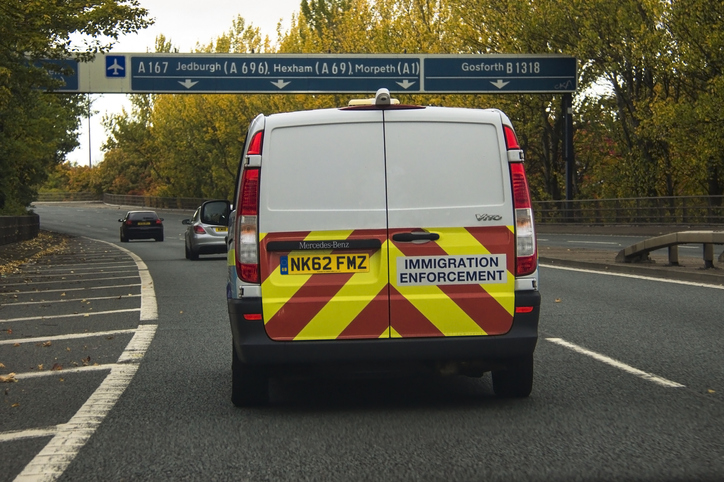Changes to right to work checks for EEA citizens from 1 July 2021
New code of practice on preventing illegal working from 1 July 2021.
There is a new code of practice issued on 1 July 2021 to assist employers in the prevention of illegal working.
All EEA Citizens require immigration status in the UK from 1 July 2021
From 1 July 2021, EEA citizens and their family members require immigration status in the UK. They can no longer rely on an EEA passport or national identity card, to prove their right to work or reside. Those eligible should have made an application to the EU Settlement Scheme (EUSS) and will have been provided with digital evidence of their UK immigration status to share with employers, banks or landlords.
They may evidence their right to work by sharing their immigration status digitally, using the Home Office ‘View and Prove’ service on GOV.UK. There may be some EEA citizens who have leave in the UK, which is held in a physical document, for example an endorsement in a passport, or a visa. The prescribed document lists, providing employers with a statutory excuse against liability for a civil penalty.
What about EEA Citizens without lawful immigration status after 30 June 2021?
The Home Office recognise that employers want to maintain compliance with Right to Work scheme and retain a stable workforce after 30 June 2021. Therefore, employers will have a continuous statutory excuse against a civil penalty if the initial right to work check was carried out correctly in accordance with legislation and guidance in place at the time the check was conducted. So, if it was acceptable to obtain a passport or identity card from an EEA national before employment commences an employer with maintain a statutory excuse.
If an EEA citizen seeks employment from 1 July and has not applied to the EUSS nor has any alternative immigration status in the UK, then they should not be employed.
If they believe they are eligible for the EUSS, employers can direct them to make an application.
There may be situations from 1 July where employers identify EEA citizens in their workforce who have not applied to the EUSS by the deadline and not hold any other form of leave in the UK.
Where an employer discovers an EEA citizen does not have lawful status they should enter into a discussion with the employee to ascertain whether they are eligible for the EUSS in the UK. Some application will be acceptable depending on the reason for late applications. It is worth noting at this point, that the Home Office stress that the criminal offence of employing an illegal worker is generally reserved for the most serious cases of non-compliance with the Right to Work Scheme. It is not intended for employers who have completed a right to work check in the prescribed manner for their EEA citizens and now wish to support their employees to make applications to the EUSS. We would recommend that employers seek advice if they discover EEA citizens who do not hold a lawful immigration status after 1 July.
EEA citizens employed prior to 30 June 2021
The Home Office have introduced some transitional measures up to 31 December 2022 to provide additional flexibility, for employers in circumstances where an EEA citizen in their workforce has not applied to the EUSS by 30 June 2021.
Employers do not need to dismiss the employee immediately, instead they should:
- Advise the employee to make an application to the EUSS within 28 days; and
- Provide confirmation that they have made their application with either;
- An EUSS Certificate of Application (CoA); or
- An EUSS email or letter from the Home Office confirming receipt of their application
If the employee does not make an application within 28 days, the employer must take steps to cease their employment in line with right to work legislation. Please seek legal advice in relation to dismissal of an employee.
The employer must request a right to work check from the Employer Checking Service (ECS) using the reference on the CoA. Employers may also be asked to provide evidence of the start date of the individual’s employment (such as a copy of the initial right to work check).
The ECS must return a Positive Verification Notice (PVN) which can be retained and recorded together with the individual’s CoA and the initial right to work check carried out before 30 June 2021. These documents will provide the employer with a statutory excuse against a civil penalty for six months.
The employee can continue to work until the PVN expires. It is recommended that the PVN date is recorded in a shared calendar, as a follow up check (or share from the individual) is required during the validity of the PVN to maintain a statutory excuse. Employers should remind the individuals to prove their right to work to you using the Home Office right to work online service once their applications are approved.
If the follow-up check confirms the application is still pending, employers will be given a new PVN valid for another six months, which should be recorded and diarised for follow-up.
If an application is refused, the employer will not receive a PVN and they must take steps to terminate employment.
Employers must make copies of the confirmation of application and retain this with the response from the ECS, along with the initial right to work check carried out before 30 June 2021, to maintain a statutory excuse against liability for a civil penalty.
For those employed on or after 1 July 2021, employers must perform the appropriate right to work checks prior to employment.
Immigration Enforcement 28-day notice
From 1 July 2021, if Immigration Enforcement encounter EEA citizens, or their family members, who are working without status, they will be issued a 28-day notice before removal action is taken. This provides individuals with an opportunity to make a late application to EUSS. Those who do not apply may risk denial to access services in the UK and deportation.
Points on EEA family Members
Some family members of EEA citizens may be eligible to join their family members in the UK after 30 June 2021.
There are different types of family permits, the EU Settlement Scheme family permit and the EEA family permit. EEA family permits will not be valid after 30 June 2021, even if there is time left on the permit. The EUSS family permit is valid and employers must take a copy of the passport as well as the vignette (sticker) and ensure the photographs represent the same person, recording the check in accordance with current guidacne.
Recently expired passports
Where individuals are unable to demonstrate a right to work because their leave is in a recently expired passport, employers should contact the Employer Checking Service (ECS) to verify their status and obtain a defence against a civil penalty. Employers must make a copy of their expired passport and endorsement and retain this with the response from the ECS to have a statutory excuse against liability for a civil penalty.
Due to the COVID-19 pandemic, some countries have extended the validity of expired passports, so please check.
If an employee presents an EUSS family permit in an expired passport, or it’s a separate document, employers must contact the ECS to verify their status.
Non-EEA family members were also required to make an application to the EUSS by 30 June 2021 and obtain an eVisa with their new status. They can also provide a share code to establish their right to work to an employer.
Some may also have a valid Biometric Residence Card (BRC) and may choose to present their valid BRC instead, for a manual check. BRC’s can be accepted until early 2022 until the transition to the online service.
If you require any assistance on right to work challenges in your workplace or any information generally on illegal working in the UK. Please get in touch with Imelda Reddington: [email protected].

